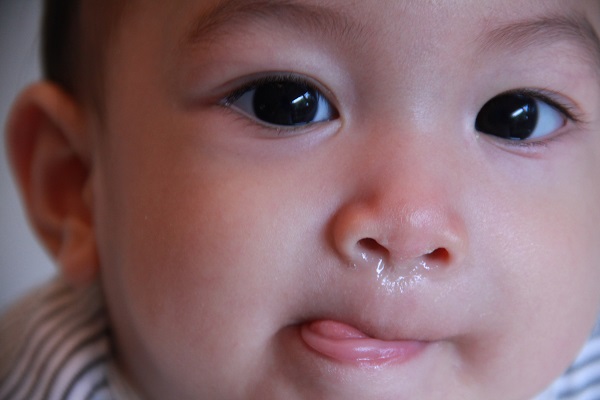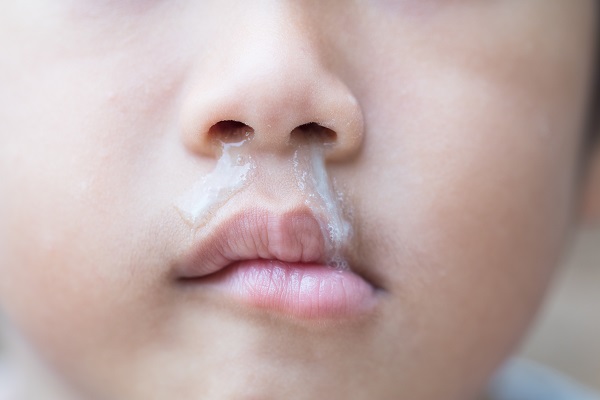- เกี่ยวกับเรา
- ผลิตภัณฑ์
- EXPLORE
- ประเภทผลิตภัณฑ์
- กลุ่มผลิตภัณฑ์
- ประเภทผิว
- บทความการดูแลลูก
- สั่งซื้อออนไลน์
- ติดต่อเรา
- สมัครสมาชิก
- เบบี้มายด์คลับ
- Power of Gentle Touch
- บทความการดูแลลูก
- บทความแนะนำโดยแพทย์ผู้เชี่ยวชาญ
- Answers for Concerned Moms. What is the Different between Antihistamines and Decongestants?
Answers for Concerned Moms. What is the Different between Antihistamines and Decongestants?

During the rainy season and winter, children no matter at what age are often sick, catching a cold or having running nose. Sometimes, parents become confused what medicines should be used for their children, especially when it comes between antihistamines and decongestants. Which one to be used? How are they different?
This is especially true with c child with running nose which is caused by two major reasons: allergies and flu. Both of them cause running nose and a lot of mucus.
Allergy is a symptom that can reveal itself in multiple body systems. "Nasal allergy" refers to allergic rhinitis which caused itchy nose, sneezing, running nose and nasal congestion. React to the allergic inflammation; the body will release histamine which stimulates various symptoms caused by allergies. There are many ways to treat allergies such as avoiding stimulants substances, using medicines, and receive allergy vaccination.
There are two types of medicines for running nose or decongestants: antihistamines and medicines for relieving nasal congestion.
Antihistamine, or allergy medicine, is the medicine which prevents histamine from binding to the histamine receptors within our body. It relieves allergic symptoms. Currently, antihistamines are divided into 3 lines which are:
- Line 1: Such as chlorpheniramine, diphenhydramine, cyproheptadine, and hydroxyzine. These medicines affect the central nervous system, causing drowsiness, dry mouth, dry throat, and thick mucus. This is a short-acting medicine and needs to ingest 3-4 times a day.
- Line 2: Such as loratadine and cetirizine. These medicines have the benefit of anti-inflammatory, long-acting, and less drowsiness.
- Line 3: Such as fexofenadine, desloratadine, and levocetirizine. These medicines’ advantages are anti-inflammatory and long-acting. It needs to be ingested only once a day and not caused drowsiness.
It is recommended for the allergy patients to use antihistamines in line 2 or line 3 to relieve the symptoms caused by histamine such as sneezing and running nose. However, these antihistamines will be less effective with nasal congestion.

Decongestant helps reducing nasal congestion and clears the nose, make breathing easier. There are medicines for ingestion and applying outside. A sample of ingesting decongestants is pseudoephedrine.
Since there are restrictions on using medicines and side effects in young children, seeing the doctor for diagnosis is recommended. So, you can be sure whether the running nose is caused by flu or allergies and have the right treatment.
ครีมอาบน้ำเด็ก
แป้งเด็ก
สบู่ก้อน
โลชั่น ครีมทาผิวเด็กและเบบี้ออย
สบู่เด็ก
แชมพูเด็ก
น้ำยาซักผ้าเด็ก
น้ำยาปรับผ้านุ่มเด็ก
น้ำยาล้างขวดนม
ชุดของขวัญ
ผลิตภัณฑ์สำหรับผู้ใหญ่
จันทร์ – ศุกร์ ( 08.00 น. – 17.00 น. )
โทร : 0-2351-1111
อีเมล : This email address is being protected from spambots. You need JavaScript enabled to view it.
© 2021 Osotsapa Company (Limited), All Rights Reserved. Privacy Policy/Terms of Service/CA Transparency Act


